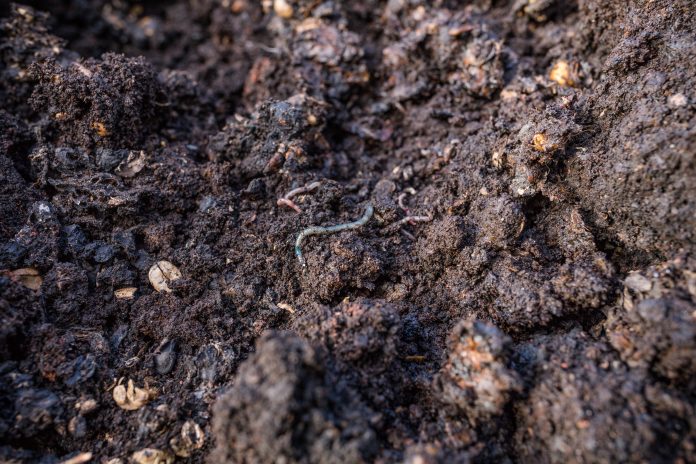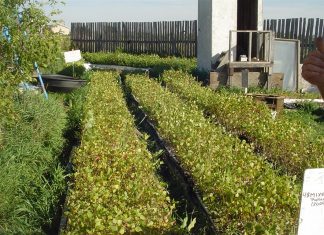Gardening is a great way to put down roots and watch the fruits of your labor grow. But did you know that with just one more living thing, your garden can be even better? Earthworms are an essential part of any vegetable garden, contributing to its health and success!
In this post, we’ll discuss why earthworms matter in the gardening world and how you can optimize their work for maximum garden productivity. Discover sustainable gardening solutions that harness the power of earthworms to enrich soil fertility and promote plant growth. With our advice on hand-picking the right species and providing them with ideal conditions for thriving, no aspiring homesteader or farmer should miss out on these earth-moving helpers!
Introducing Earthworms – Nature’s Most Valuable Gardeners
Earthworms are often overlooked, yet they are nature’s most valuable gardeners. Not only do they aerate soil by tunneling through it, but they also break down dead plant material into nutrient-rich castings that fertilize the earth.
These wriggling wonders can be found in almost every soil type, making them an invaluable addition to any garden. Did you know that earthworms can consume up to one-third of their body weight in soil and organic matter each day?
That’s quite the appetite! So the next time you see an earthworm, give them a moment of appreciation for the amazing work they do in keeping our gardens healthy and thriving.
Benefits of Incorporating Earthworms into Your Garden
Incorporating earthworms into your garden can bring a plethora of benefits to your plants, soil, and overall garden ecosystem. Earthworms are natural tillers that constantly burrow through the soil, creating channels for air and water to penetrate and reach plant roots more effectively. For even better soil structure and moisture retention, many gardeners also buy rocks for gardens to complement the work of earthworms and enhance the overall landscape design.
As they digest organic matter, they leave behind nutrient-rich castings that enrich the soil with macronutrients and micronutrients. Earthworms also increase soil fertility by breaking down organic matter into humus, which enhances soil structure, texture, and water-holding capacity.
By introducing earthworms into your garden, you can improve plant growth and yields, boost soil health, reduce erosion, and promote a thriving and sustainable garden environment. For professional advice on optimizing soil conditions and promoting healthy garden ecosystems, consider consulting Sugar Green Landscaping.
How to Attract and Maintain Earthworms in Your Garden
Earthworms play a vital role in maintaining soil structure and fertility in your garden, making it essential to attract and maintain them throughout the year. To draw these soil-loving creatures to your yard, try creating a hospitable environment for them.
Opt for organic gardening practices; limiting the use of chemicals in favor of organic compost and fertilizers. Additionally, watering your garden regularly will provide earthworms with the moisture they need to thrive. Finally, consider leaving fallen leaves and other plant debris on the soil to provide a food source and shelter for earthworms.
By taking these simple steps, you can attract and maintain earthworm populations in your garden, leading to a healthier and more productive growing environment.
Supplies Needed for Creating an Ideal Environment for Earthworms
Creating an ideal environment for earthworms involves providing them with the appropriate supplies to ensure they thrive in their habitat.
Earthworms require moist and nutrient-rich soil, which can be achieved through the addition of organic matter such as compost or manure. The soil pH should be around 6.5 to 7.0, and proper aeration is necessary to promote their growth. In addition, providing a continuous source of food for earthworms is essential.
They mainly feed on decaying organic matter like leaves and dead plant roots. Lastly, it is crucial to maintain consistent moisture levels to keep their skin hydrated and healthy.
By ensuring all these supplies are available, an excellent environment for earthworms can be created, encouraging their population to grow and thrive in your garden.
Tips on Feeding Your Earthworm Population
Earthworms are crucial to maintaining healthy soil and can improve crop yields in your garden. However, for them to thrive in your compost bin or garden, they need to be properly fed and cared for.
Here are some tips for feeding your earthworm population: First, make sure to give them a balanced diet of both carbon and nitrogen-rich food scraps, such as fruit and vegetable scraps, eggshells, and coffee grounds. It’s important not to overfeed them as this can cause an excess of moisture and lead to anaerobic conditions.
Additionally, avoid adding meats, dairy, and oily foods to the bin as they can create an unpleasant odor and attract pests. By following these simple feeding tips, you can help keep your earthworms healthy and happy, leading to a more productive and nutrient-rich garden.
What to Do if Your Worms Begin to Disappear
If you’ve been raising worms, you know how important they are for composting and gardening. But what happens when you notice that your worm population is dwindling? Don’t worry, there are some things you can do to address this issue.
First, assess the environment. Are the worms living in the right temperature and moisture conditions? Are they getting enough food? If not, adjust accordingly. Another solution is to introduce new worms or egg capsules to the habitat. If you suspect a predator, like rats or birds, put a protective cover over the bin or move it to a safer location.
Finally, be patient. Worms can take time to acclimate to their surroundings and reproduce, so don’t assume the worst too quickly. With a little attention and care, your worm population will hopefully thrive once again.
In conclusion, earthworms can be a great addition to any garden. They are hardworking and reliable, and provide numerous benefits to plants and soil health. By following the tips provided above, gardeners and homesteaders can create an ideal environment for their earthworm population. With simple supplies like burlap sacks and peat moss, everyone can learn how to attract and maintain these creatures in their gardens. Although all creatures have predators, one can take preventative measures from potential threats that may reduce the worm population over time. Nevertheless, building a healthy community of earthworms is incredibly beneficial for anyone looking to achieve quality advantages in their gardens!














